The Lebanese mouneh tradition begins each autumn in mountain villages across Lebanon, where families gather to preserve the harvest using methods perfected over five millennia. This ancient practice of food preservation connects modern Lebanese families to their Phoenician ancestors through techniques that require no refrigeration, no electricity—only wisdom, patience, and natural ingredients.
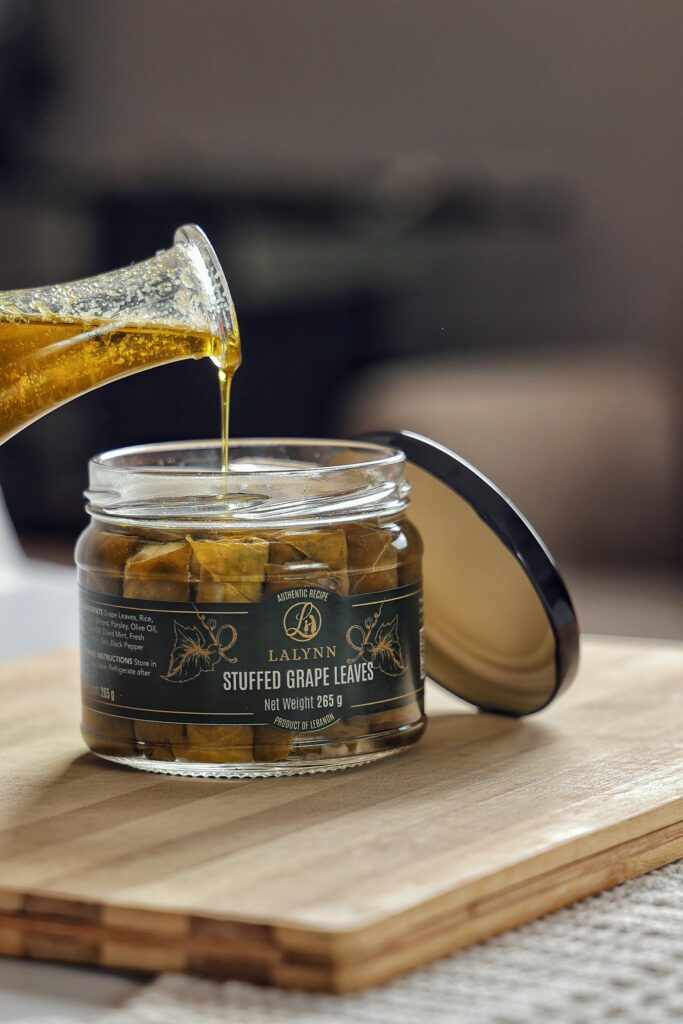
When you walk into a Lebanese home during mouneh season, the air fills with the aroma of simmering fruit, the tang of fermenting vegetables, and the richness of olive oil. Furthermore, you’ll witness something increasingly rare in our modern world: multiple generations working together, hands moving in practiced rhythms perfected over countless harvests.
Understanding the Lebanese Mouneh Tradition
The word “mouneh” (موْنة) derives from Arabic roots meaning “provisions” or “sustenance.” In Lebanese culture, however, this Lebanese mouneh tradition encompasses far more than simple food storage. Consequently, it represents a complete philosophy of living in harmony with seasonal abundance while preparing mindfully for scarcity.
Every Lebanese family maintains unique mouneh traditions inherited through maternal lines. Moreover, these recipes and techniques pass from grandmother to granddaughter in village kitchens, creating an unbroken chain stretching back to when Phoenician traders sailed the Mediterranean.
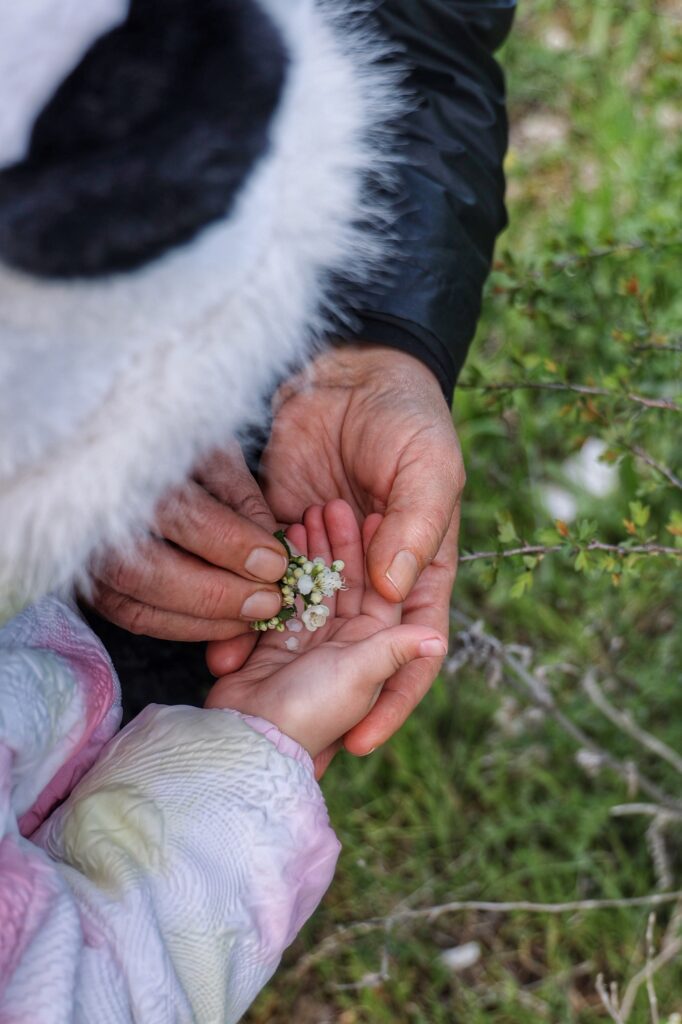
At LaLynn, we honor this heritage by following the exact preservation methods Lebanese families have used for generations. Additionally, our commitment to traditional techniques ensures every jar captures authentic Lebanese flavors.
Historical Roots of the Mouneh Tradition
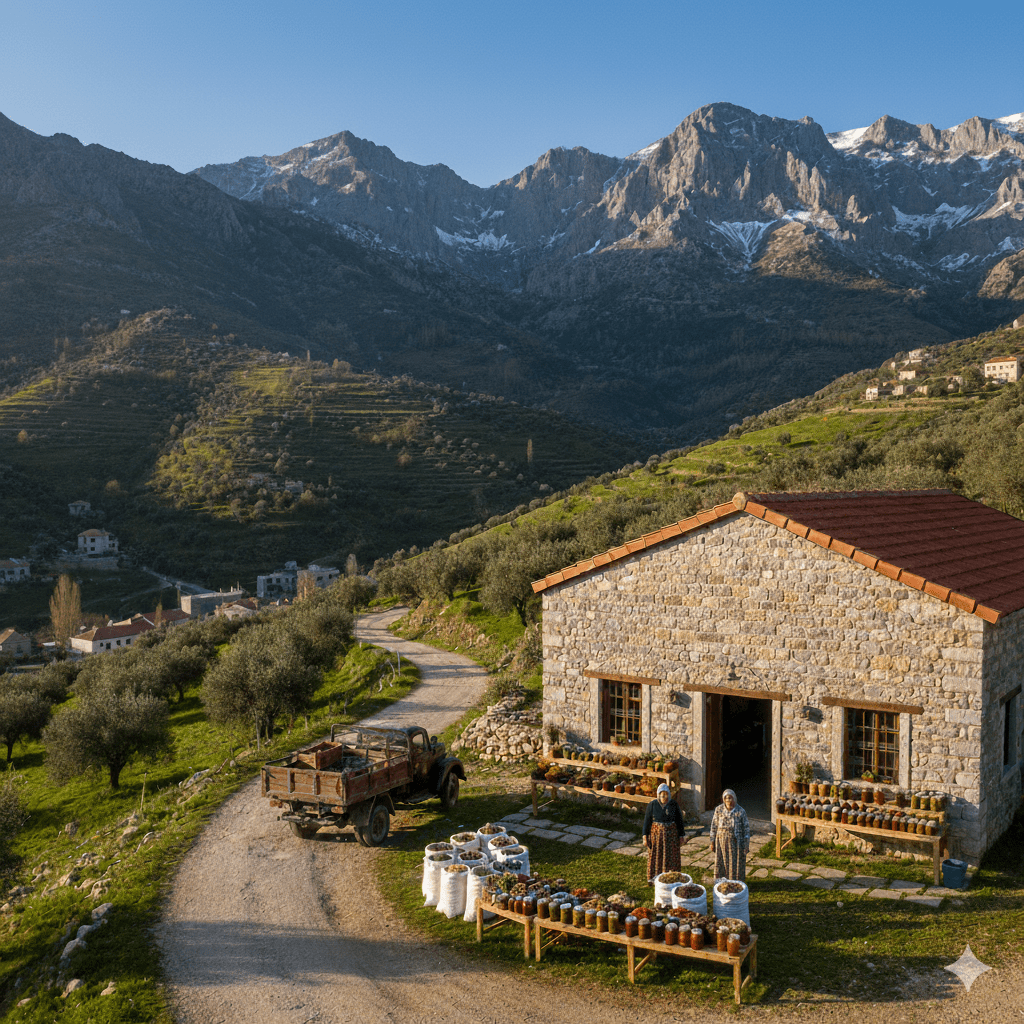
Archaeological evidence suggests Lebanese communities practiced sophisticated food preservation as early as 3000 BCE. In addition, ancient texts reference techniques remarkably similar to modern mouneh methods, proving the enduring wisdom of these practices.
The Lebanese mouneh tradition didn’t emerge overnight. Rather, it developed over thousands of years as communities adapted to Mediterranean climate patterns that created distinct seasons of abundance and scarcity.
Why the Lebanese Mouneh Tradition Emerged
Lebanon’s unique geography created both challenge and opportunity. Summer and autumn bring incredible abundance—olive trees heavy with fruit, fig trees bursting with sweetness, vegetable gardens overflowing. However, winter means fresh produce becomes scarce, especially in mountain regions.
Our ancestors faced a fundamental question: How do we capture summer’s bounty to sustain families through winter months? Their answer became the Lebanese mouneh tradition—a sophisticated preservation system requiring no modern technology.
Natural Preservation Methods in Mouneh Tradition
The Lebanese mouneh tradition relies on five primary preservation techniques, each refined over millennia:
Salt Preservation
Salt draws moisture from foods through osmosis, creating environments where harmful bacteria cannot survive. When you enjoy our traditional Lebanese pickles, you’re eating vegetables preserved using methods unchanged for 3,000 years.
Oil Preservation
Olive oil creates anaerobic seals preventing spoilage. Makdous—those delicious stuffed baby eggplants—stay perfectly preserved for months in quality Akkar olive oil, protected from air and contamination.
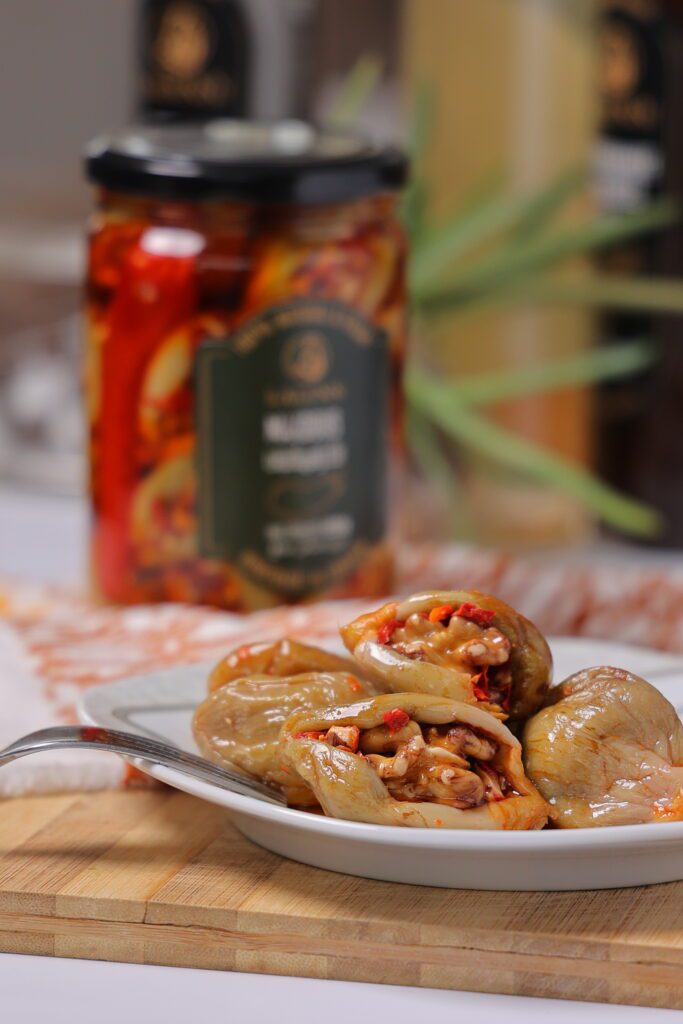
Sugar Preservation
Traditional jams work through osmosis, removing water that bacteria need to grow. Consequently, our fig jam tastes exactly as it did in our great-grandmothers’ time, preserved naturally through proper sugar concentration.
Fermentation
Controlled bacterial growth prevents harmful spoilage while adding beneficial probiotics. The slightly tangy taste of aged mouneh isn’t decay—rather, it’s transformation into something more nutritious.
Sun-Drying
Solar dehydration concentrates flavors while removing moisture that causes spoilage. As a result, dried tomatoes and herbs intensify their taste while becoming shelf-stable for years.
The Social Fabric of Mouneh Tradition
The Lebanese mouneh tradition transcends mere food preparation. Instead, it represents community bonding, knowledge transfer, and cultural identity preservation.
In traditional Lebanese villages, mouneh season brings families together. Women gather in courtyards, children help wash vegetables, and men deliver bushels of produce from family orchards. Furthermore, stories flow as freely as olive oil, and ancient techniques are demonstrated with patient, knowing hands.
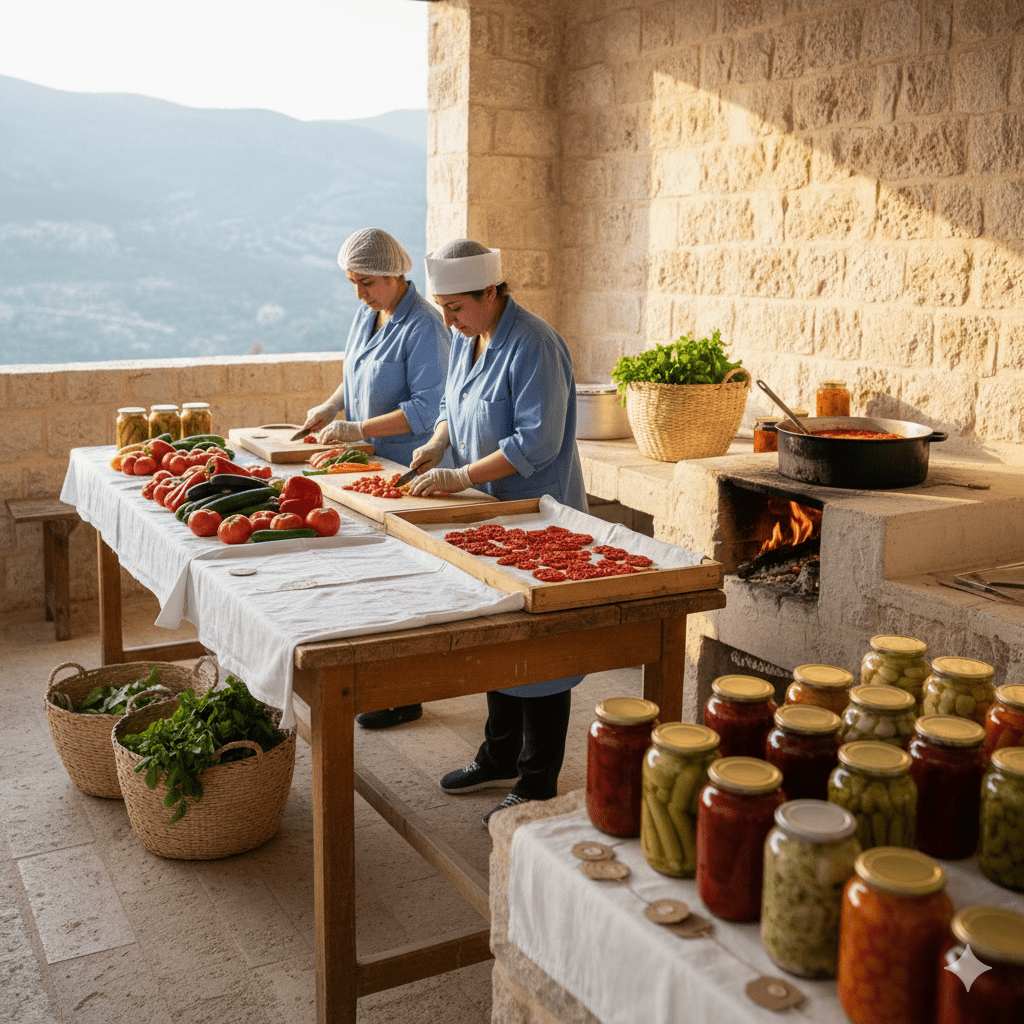
This communal aspect ensures knowledge transfers naturally—not from cookbooks, but through hands-on demonstration. Moreover, grandmother’s hands show you how to stuff makdous just right, when jam reaches perfect consistency, and why timing matters in fermentation.
Cultural and Spiritual Dimensions
Beyond practical food preservation, the Lebanese mouneh tradition carries deep spiritual significance. When you invest hours—sometimes days—preparing food with your hands, you develop profound relationships with that food.
Consequently, mouneh teaches valuable life lessons:
- Patience through slow, deliberate processes
- Presence by demanding full attention
- Gratitude for abundance while preparing for scarcity
- Connection to earth, seasons, and ancestors
In our fast-paced modern world, this deliberate slowness feels almost revolutionary. Nevertheless, it remains essential for maintaining cultural identity and family bonds.
Modern Relevance of Ancient Tradition
You might wonder: why preserve food traditionally when supermarkets stock everything year-round? The answer lies in what the Lebanese mouneh tradition offers beyond mere sustenance—connection.
Connection to:
- Geographic place and terroir
- Family heritage and ancestors
- Cultural identity and community
- Natural seasons and cycles
- The land itself and its bounty
Furthermore, when we at LaLynn prepare our mouneh, we’re not simply making products. Instead, we’re keeping alive a tradition connecting modern Lebanon to ancient Phoenicia, honoring countless Lebanese grandmothers who perfected these recipes through trial, error, and unwavering love.
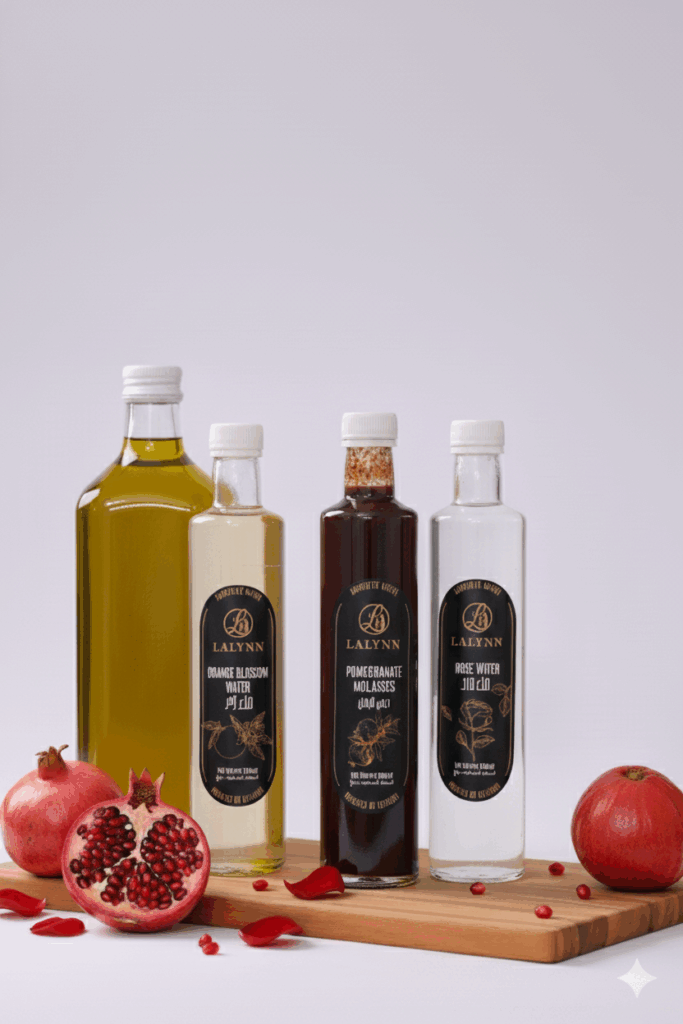
The Science Behind Traditional Wisdom
Modern food science increasingly validates the Lebanese mouneh tradition. Research confirms that traditional preservation methods often retain more nutrients than commercial alternatives while creating beneficial compounds absent in fresh foods.
For instance, fermented foods contain probiotics supporting digestive health. Additionally, sun-dried foods concentrate vitamins and minerals, while oil-preserved vegetables maintain fat-soluble vitamins better than most modern preservation methods.
LaLynn’s Commitment to Tradition
At LaLynn, every product follows authentic Lebanese mouneh tradition methods. We use identical techniques our grandmothers employed—the same salt ratios, identical slow-cooking times, careful hand-stuffing of makdous.
Moreover, we refuse to take shortcuts. We don’t add artificial preservatives because we don’t need them—our ancestors already discovered perfect preservation methods thousands of years ago.
When you open a jar of LaLynn mouneh, you’re not merely eating preserved food. Rather, you’re tasting history, participating in a tradition that has sustained Lebanese families through millennia of changes, challenges, and triumphs.
Preserving More Than Food
The true magic of the Lebanese mouneh tradition lies in preserving culture itself, not just food. Each jar represents accumulated wisdom, family memories, and cultural continuity stretching across centuries.
As fewer families make traditional mouneh, this irreplaceable knowledge risks disappearing within a single generation. Therefore, keeping the Lebanese mouneh tradition alive becomes increasingly urgent.
This is why LaLynn exists—to ensure these ancient techniques survive and thrive in our modern world, proving that some traditions are too valuable to lose, too perfect to “improve,” and too important to forget.
Read about how Lebanese families preserved food without modern refrigeration to understand the ingenious methods behind the mouneh tradition.